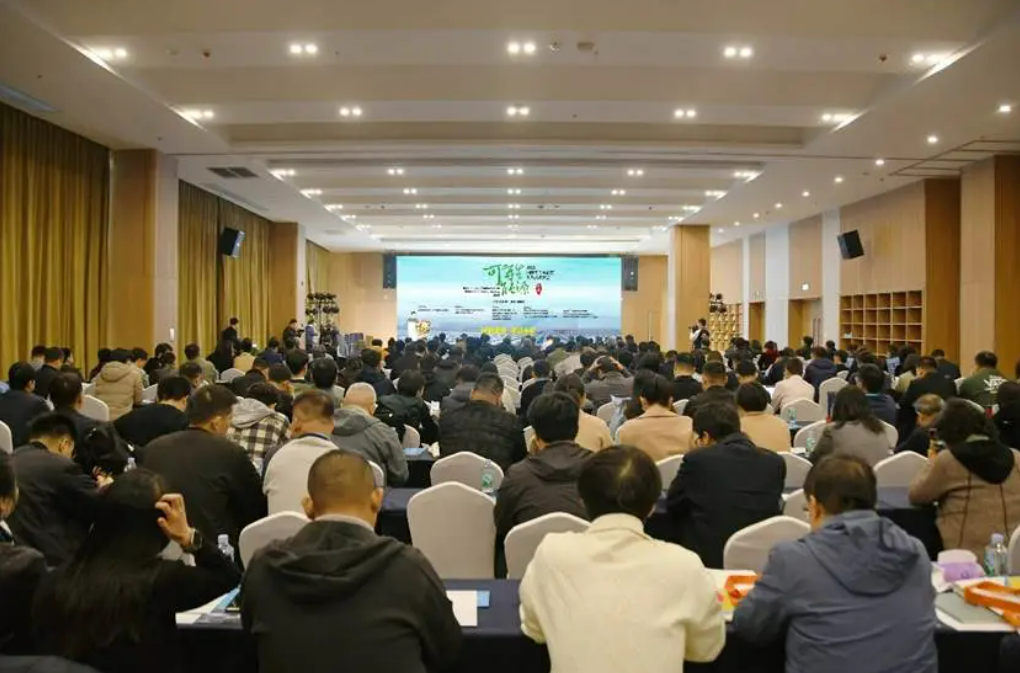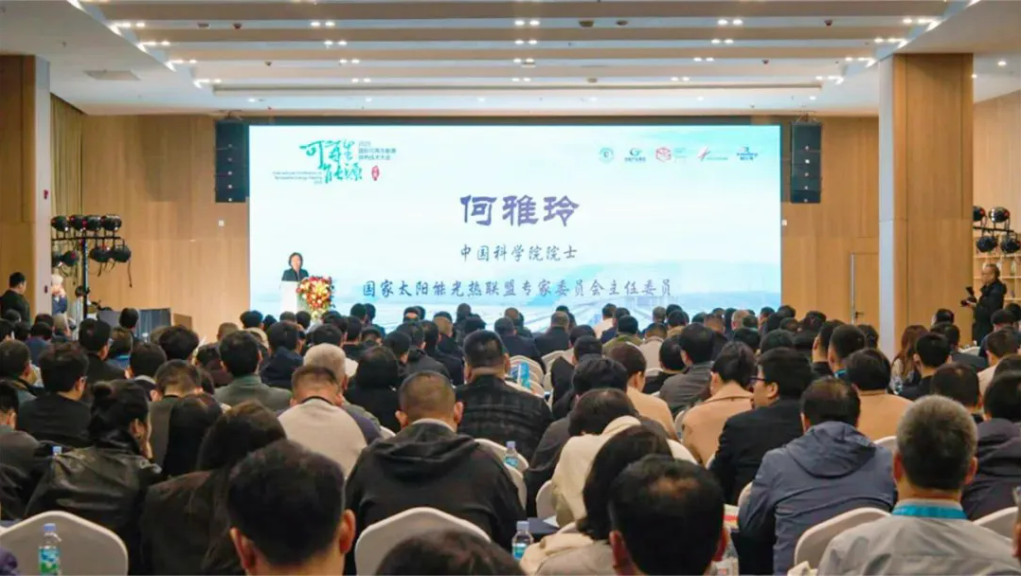On March 29, the "2025 International Renewable Energy Heating Technology Conference," hosted by the CSTA, and co-hosted by Handan Industrial Investment Group Co., Ltd., Handan Culture, Sports and Tourism Industry Group Co., Ltd., Handan Jianxu New Energy Co., Ltd., and Inner Mongolia Xuchen Energy Co., Ltd., grandly opened in Kunle Bay, Handan City.
The conference, themed "Green Heat • Driving the Future," was attended by over 300 leaders, experts, and representatives from the renewable energy field of domestic and international universities and scientific research institutions, as well as leaders from relevant government departments of the National Energy Administration, Hebei Province, and Handan City.
He Yaling, the director of the Expert Committee of the CSTA and an academician of the Chinese Academy of Sciences, pointed out that heat is an important energy source for buildings and industry, and the application of renewable energy heating needs to be accelerated. The key areas include: low-temperature heat utilization in industry, integration of oil and gas with renewable energy, solar thermal applications, geothermal and biomass energy heating, and centralized heating in rural areas and towns.
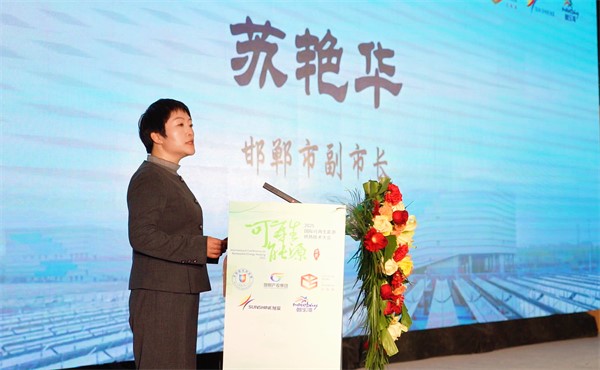
Su Yanhua, Vice Mayor of Handan, stated that Handan has a profound cultural heritage, and the municipal committee and government have implemented new strategic ideas, driving high-quality development with a dual-engine approach of new energy and cultural tourism industries. The Handan Kunle Bay project, as the first in the country to apply CSP technology on a large scale to the cultural tourism industry, is not only an innovative application attempt to cultivate and develop new productive forces but also a leading demonstration of Handan's green transformation and support for carbon peaking and carbon neutrality, writing a significant chapter in the new chapter of cultural tourism integration.
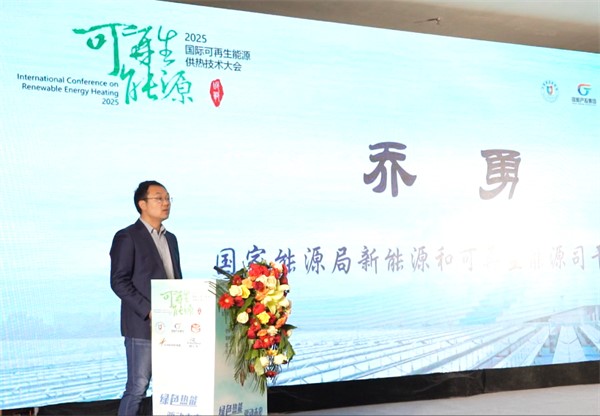
Qiao Yong, from the Department of New Energy and Renewable Energy of the National Energy Administration, emphasized that renewable energy heating is crucial for low-carbon transformation and needs to be included in regional planning and strengthened for promotion, contributing to clean heating in northern regions. In the future, the non-electric utilization direction will be a key focus in the "15th Five-Year Plan."
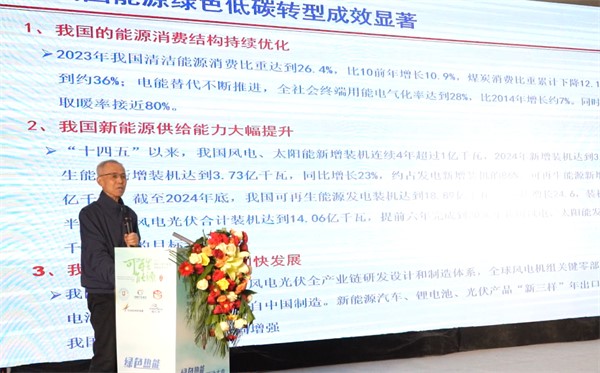
Zhang Yuqing, former deputy director of the National Energy Administration, pointed out in his report that renewable energy heating will become the core support for decarbonization in industry, buildings, and agriculture, and requires coordinated advancement of policy and technological innovation. Hu Runqing from the Energy Research Institute of the National Development and Reform Commission elaborated on the renewable energy substitution path for the heating industry. Many experts discussed low-carbon heating. Ji Jie, a distinguished professor at the University of Science and Technology of China, shared research findings on the construction and performance of solar passive heating and sterilization/disinfection building walls; Wang Ruzhu, a professor at Shanghai Jiao Tong University, proposed a "heat pump + heat storage" solution; Yang Xudong, a professor at Tsinghua University, shared distributed heating technology; Yang Ronggui, a professor at Peking University, focused on heat storage technology breakthroughs. Wang Zhifeng, a professor at the University of Chinese Academy of Sciences, introduced the progress of solar seasonal heat storage technology and emphasized its strategic significance to the new power system.
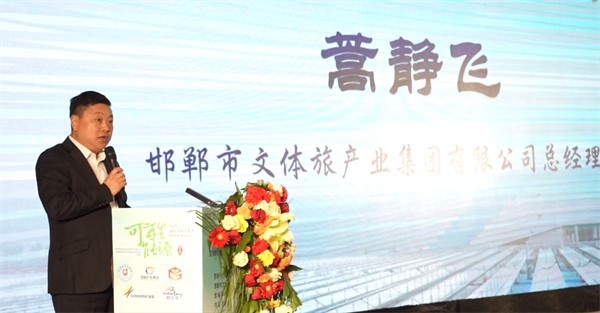
Hao Jingfei, general manager of Handan Culture, Sports and Tourism Industry Group Co., Ltd., said that the group actively lays out wind, solar, and energy storage industries, builds charging networks and integrated photovoltaic energy storage and charging projects, and promotes rooftop photovoltaic construction. With a "zero-carbon gene," the group reshapes the cultural tourism model and has built the Handan Kunle Bay International Resort, the world's first integration of CSP technology and cultural tourism, setting a new benchmark for green industries.
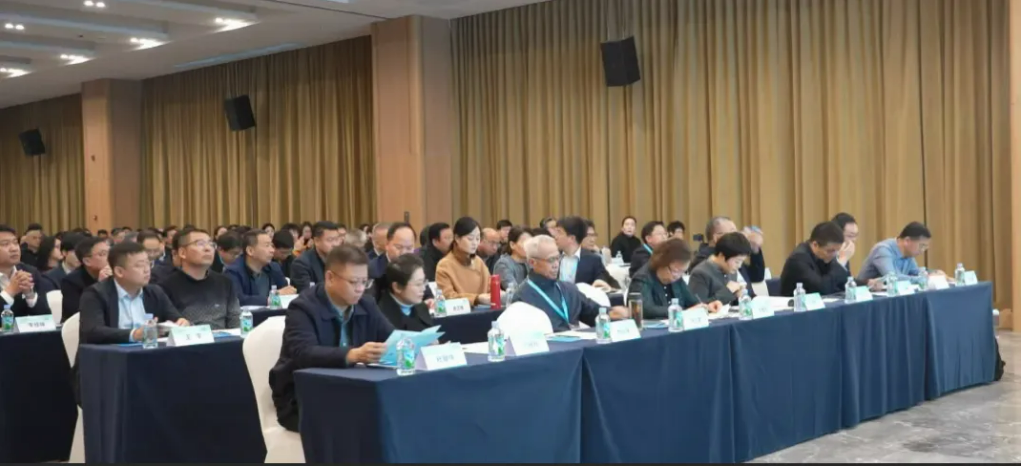
The conference focuses on renewable energy heating technology, covering applications of solar energy, heat pumps, heat storage, biomass energy, etc., and discusses the green transformation of industry. Attendees will visit the world's first "CSP+" cultural tourism project to experience the snow and water worlds powered by solar energy. Renewable energy heating will become an important force in the global energy transition, injecting continuous momentum into a "zero-carbon future."
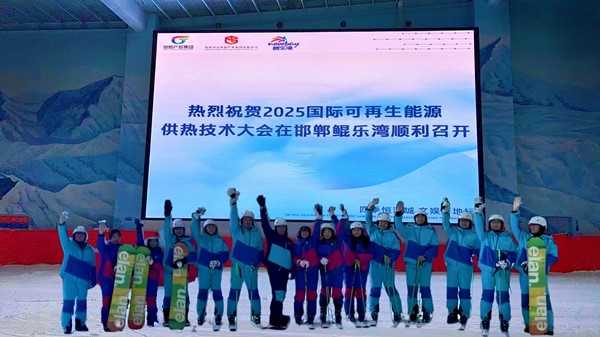
This conference was undertaken by the ZhongGuanCun XinYuan Solar Thermal Technology Service Center and the Institute of Electrical Engineering, Chinese Academy of Sciences, and received strong support from the National Residential Industry Technology Innovation Strategic Alliance, National Wood and Bamboo Industry Technology Innovation Strategic Alliance, National Forage Industry Technology Innovation Strategic Alliance, Geothermal Energy Professional Committee of the Chinese Renewable Energy Society, Solar Building Professional Committee of the Chinese Renewable Energy Society, and the Low-Carbon Intelligent Heating Technology Professional Committee of the China Energy Research Society.
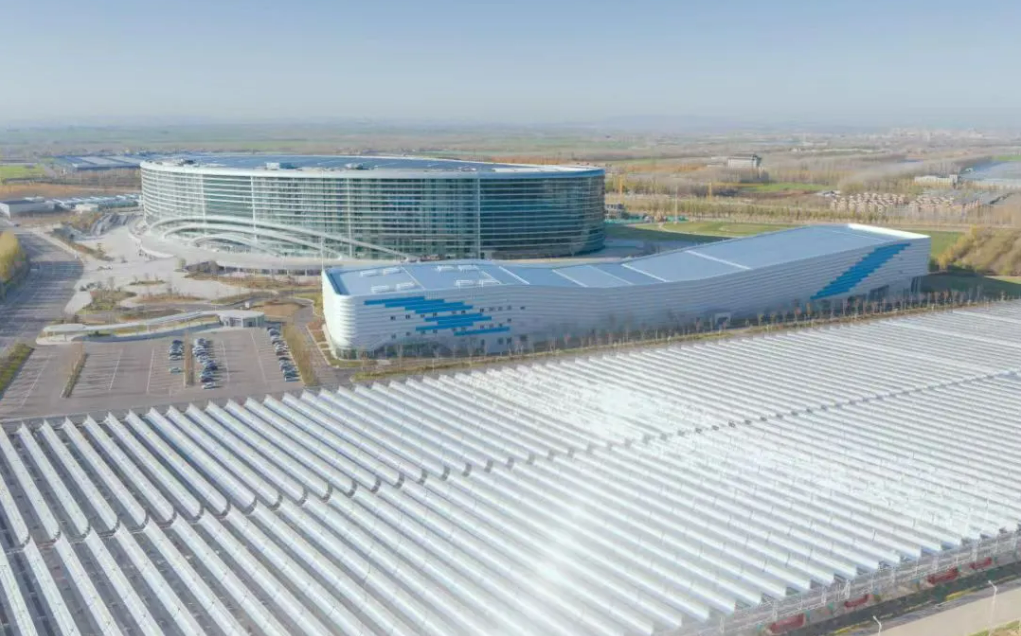
Wang Zhifeng, chairman of the CSTA and a researcher at the Institute of Electrical Engineering, Chinese Academy of Sciences, said that the conference gathers experts from multiple fields such as energy and energy conversion to discuss and exchange ideas on the demonstration, application, and related scientific issues of renewable energy heating. The aim is to promote the development of this field, solve practical application problems, and provide support for sustainable energy utilization and heating methods. Regarding the issues of land occupation and resource consumption in renewable energy heating, the industry needs to work together to promote the development of relevant technologies, form suggestions, provide a basis for national energy policy-making, and jointly promote the high-quality development of renewable energy heating.
